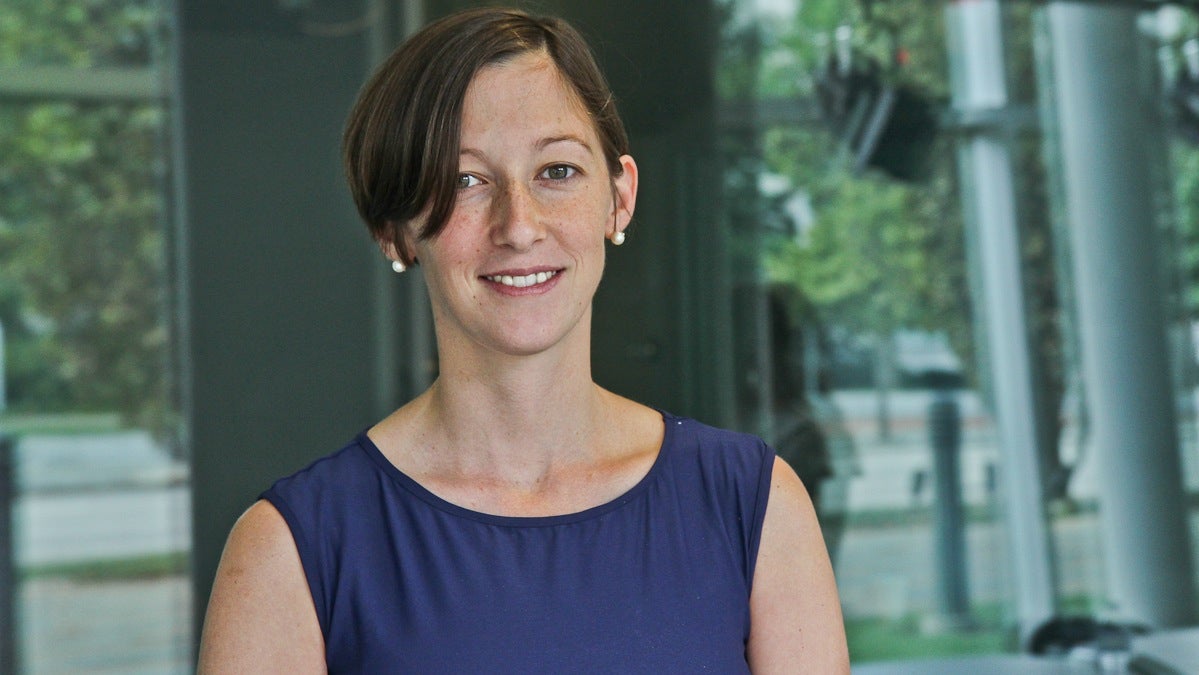MacArthur Fellow Danielle Bassett on leveraging brain research to enhance learning
Listen
University of Pennsylvania researcher Danielle Bassett
Scientists often toil in dusty laboratories for years without anyone taking notice of their work, but one big discovery, and sometimes a single phone call, can change all of that.
That’s exactly what happened to Danielle Bassett, a researcher at the University of Pennsylvania who was one of 21 individuals chosen for this year’s MacArthur “genius grant”.
Bassett was awarded the $625,000 fellowship to advance her study of the human brain, which applies tools from a scientific field called “network science” to yield insights into how our “neural circuitry” evolves over time and helps us learn.
“I’m fascinated by learning, I’m interested in how the brain’s network configuration changes when our behavior changes…when we learn a new skill,” said Bassett. “What I’d like to be able to do is to understand how the brain evolves to enable that change and then how we could optimize that to enhance learning in an individual.”
“Network science” is an interdisciplinary field that combines techniques from mathematics, statistical modeling, physics, and computer science to understand the brain’s own complex inner networks in a more holistic way.
Bassett says her research — which also attracted a $50,000 Sloan Foundation grant earlier in the year — is inspired by her own unusual blend of interests.
“I am a physicist by training,” she said. “But…I was also very interested in medicine in general, and psychology and psychiatry in particular. Along the way I was really looking for ways in which I could mold these two loves together.”
In practice, Bassett and her team use MRI machines to take images of brain activity while subjects are learning something new — being instructed in the hand motions used to play a song on the piano, for instance. Meanwhile, the MRI tracks how different parts of the brain change as they learn previously unfamiliar hand movements. The images “light up” as people learn, feeding back data Bassett hopes will indicate when parts of the brain are interacting with one another during the learning process and which change as new skills are learned.
“We see connections moving in and out between different parts of the brain and rapid reconfiguration of networks,” she said. “Think of social networks, individual people and how they’re connected up. Those networks change drastically, they reconfigure very quickly.”
Unsurprisingly, fast learners have “flexible” brain networks that reconfigure quickly to incorporate new information or skills. Bassett believes that understanding how those reconfigurations occur in healthy people could lead to advances in rehabilitative techniques for individuals suffering from brain injuries or neurological disorders, or even ways to optimize the learning process for the average person. But how would those theoretical “optimizations” work in reality?
“I think, number one, by creating new environments…asking whether a certain learning environment is enhancing brain flexibility or not enhancing brain flexibility is one way to do it,” said Bassett. “Another way is to focus on, specifically in rehabilitation, are there particular areas of the brain that we can intervene in, stimulate, for example, externally that would then lead to enhanced reconfiguration and flexibility?”
Although Bassett says she isn’t sure why she was chosen over other candidates for the fellowship — the MacArthur selection process is notoriously secretive — but she does know where the new grant money will go.
Bassett says she plans to focus on promoting some non-traditional research concepts that she says would struggle to get funding through normal scientific channels, as well as expanding her current observations beyond already-healthy subjects.
“We’re asking if people who have difficulty learning because they have a particular disease have different strategies of reconfiguration,” she said. “That’s something we haven’t quite figured out yet and the MacArthur would definitely help us do that.”
WHYY is your source for fact-based, in-depth journalism and information. As a nonprofit organization, we rely on financial support from readers like you. Please give today.



